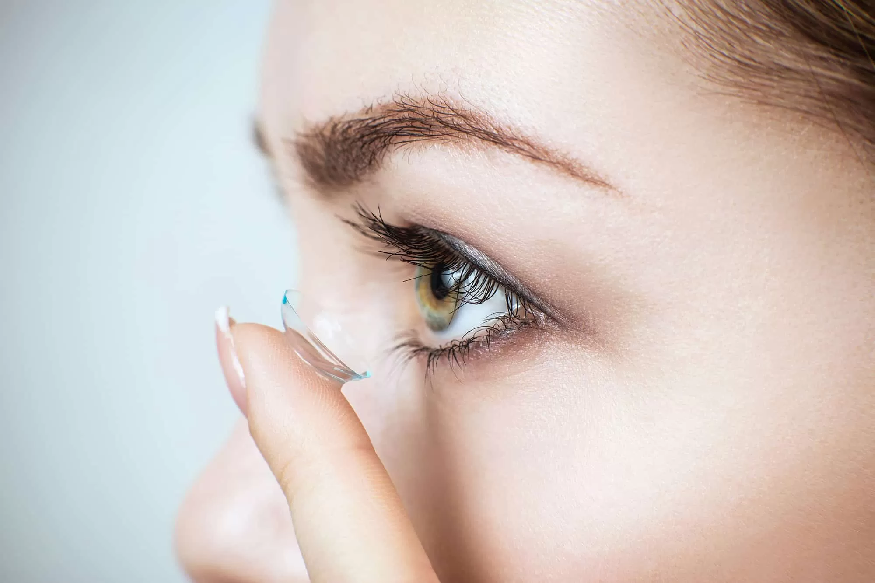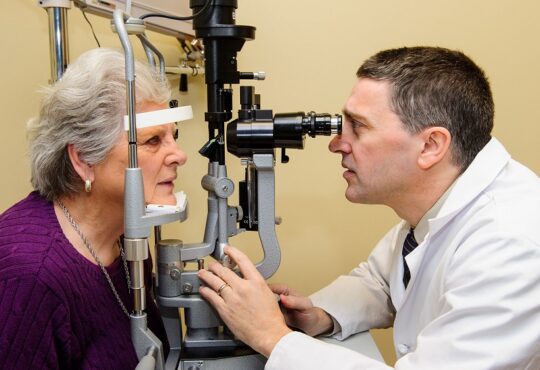
What Are the Advantages and Disadvantages of Hard Contact Lenses?
There are numerous contact lenses to choose from if you prefer to wear them instead of glasses for better vision.
Both hard and soft contact lenses have advantages and disadvantages. Your eyesight requirements, lifestyle, and personal preferences determine which one is best for you.
If you’re thinking about getting hard contact lenses, keep reading to learn about their benefits and drawbacks and how to use them safely.
What are the benefits of wearing hard contact lenses?
Compared to soft contact lenses, RGP hard contact lenses have various advantages. Let’s take a closer look at these advantages:
Pros
Clear vision. The clarity of vision is one of the primary distinctions between hard and soft contact lenses. RGP hard contact lenses are often sharper and clearer than soft lenses.
Deposit resiliency. The tear coating in your eyes contains proteins and lipids that can cling to contact lenses. Because RGP hard lenses are not constructed of water-containing materials (as soft contact lenses are), they are more resistant to protein and fat buildup.
If your eyesight does not change and you take proper care of your lenses, you may be able to keep one pair of hard contact lenses for two to three years.
It is less expensive. Hard contact lenses are less expensive in the long run than soft lenses since they last longer.
A better choice for astigmatism. Astigmatic patients may benefit from RGP hard lenses known as scleral lenses.
What are the drawbacks of wearing hard contact lenses?
RGP hard contact lenses have several downsides as well. Here are some of the most typical problems with these lenses.
Cons
Adaptation period Hard contact lenses can be more difficult to adjust to than soft lenses. They may not be a good fit for you if you can’t tolerate wearing them consistently as you adjust to how they feel.
Regular use is essential for comfort. If you don’t wear your hard contact lenses for a few days, they might not feel as comfortable when you put them back in. For your eyes to feel comfortable again, they normally require adjusting time. Soft contact lenses are not like this.
They move more quickly. Because hard lenses do not conform to the shape of the eye like soft contact lenses, they are more likely to dislodge and slip off the centre of your eye.
Daily cleaning is required. Dust and debris can accumulate more easily behind hard contact lenses than soft lenses. This can be uncomfortable and increase the risk of corneal abrasion.




Dear rssfacil.net Admin!
Learn How to Make $100 – $1500 per Day
You can get your hands on the method that I’ve mastered over the last 12 years of building and monetizing…
>> https://cutt.ly/TwFzZam9
Kind regards
Roxanna
Norway, NA, Rasta, 1476, Espentunet 221
If you’d like to opt-out of these types of offers, kindly respond to this email.
To the rssfacil.net Administrator!
Ready to supercharge your income effortlessly?
Earn $136+ Per Day With This Magic Button, A One-click Payday App That Makes You Money Every Time Someone Clicks Their Mouse.
>> https://cutt.ly/nwI9KOYS
Yours in friendship
Don
Germany, RP, Bad Munster Am Stein-Ebernburg, 55583, Motzstr. 77
To stop these types of offers from reaching you, please reply to this email.
Hello rssfacil.net owner,
We can help you grow your online presence and attract more customers to your business with our Top SEO Services.
Our team of experts can improve your Google and YouTube Ranking, optimize your Google Maps listing, provide Professional Content for your website, and increase your Website Traffic.
Don’t miss this opportunity to grow your business and stay ahead of the competition.
=>> https://cutt.ly/bwaduXWo
Best regards,
Forlonge
Austria, BURGENLAND, Dorfl Bei Kasten, 3072, Herrenstrasse 85
To stop any further communication through your website form, Please reply with subject: unsubscribe rssfacil.net
Hello rssfacil.net webmaster,
We can help you grow your online presence and attract more customers to your business with our Top SEO Services.
Our team of experts can improve your Google and YouTube Ranking, optimize your Google Maps listing, provide Professional Content for your website, and increase your Website Traffic.
Don’t miss this opportunity to grow your business and stay ahead of the competition.
=>> https://cutt.ly/bwaduXWo
Best regards,
Lavater
Germany, SH, Bad Schwartau, 23600, Genterstrasse 46
To stop any further communication through your website form, Please reply with subject: unsubscribe rssfacil.net
Hello rssfacil.net admin,
We can help you grow your online presence and attract more customers to your business with our Top SEO Services.
Our team of experts can improve your Google and YouTube Ranking, optimize your Google Maps listing, provide Professional Content for your website, and increase your Website Traffic.
Don’t miss this opportunity to grow your business and stay ahead of the competition.
=>> https://cutt.ly/bwaduXWo
Best regards,
Karpinski
Denmark, REGION SJALLAND, Frederiksberg C, 1959, Ostervoldgade 67
To stop any further communication through your website form, Please reply with subject: unsubscribe rssfacil.net